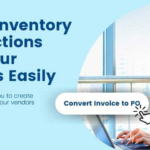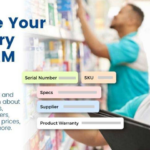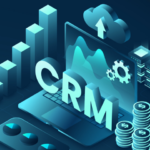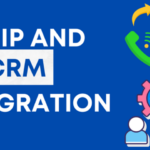Typically, sales professionals find it easy to see the benefits of adopting a Customer Relationship Management (CRM) software. They appreciate that their sales data will be centrally processed and presented in an easy-to-follow format in CRM, enabling them to track sales processes, employee performance, and thus maximize sales.
Sales professionals often see CRM as another tool, as more work and just another way for their bosses to keep track of their work. It’s also the extra time spent entering data into the CRM application which adds to the irritation.
Why do sales professionals need CRM software?
- Enjoy a safe storage space
CRM helps salespeople store their contacts, sales opportunities, activities, and scheduled plans in one place securely and centrally, and have uninterrupted access to the database from multiple locations. Rest assured your data is not just going to get lost.
- Plan and time-manage like a pro
CRM Software helps salespeople optimize their daily schedules and prioritize tasks to ensure that customers are not ignored and that key prospects are reached on time. CRM lets salespeople spend more time with customers, leading to more closed deals and a stronger customer base.
- Generate Activity reports
CRM helps salespeople make their weekly or monthly management reports easy to prepare. The process is automated and transparent, and it takes just a few clicks to tell others what sales are currently underway.
- Stop surfing, start targeting
CRM helps salespeople segment the data and identify valuable opportunities through selections based on criteria. This prevents you from cutting and pasting from different documents for hours or surfing in the disorganized data lists.
- Stay up-to-date on what’s happening
CRM offers shared calendars, templates for documents and e-mail integration, uniting all members of the team, and keeping everyone updated. Sharing patterns and processes of selling lets salespeople see what works best. CRM also increases sales force communication and sales management.
- Timely display of new sale
CRM helps salespeople to know exactly when customers need to be contacted by tracking all communication with customers; for example, for product replacement, contract renewal, or upselling to a new product or service. All of this increases your chances of making a sale close.
- Know what your customers want
Since all the customer-related data is stored in CRM Software, it helps salespeople to analyze the needs of customers and even anticipate their problems – all at the right time.
- Cut down on admin tasks
By reducing and even eliminating some of the repetitive actions that take a lot of time but yield little profit, CRM releases the sales teams from most admin tasks. CRM stores product and price details trigger activity reminders and take salespeople step by step through the sales pipeline.
With salespeople, it is the reduction of errors that CRM can help with (for example, in orders or quotes). Efforts and costs associated with correcting those errors could be much higher. Finally, it also boils down to such trivial things as saving money on those cluttering and often vanishing Post-it notes, as every new information can be stored safely in the system.






7 Comments